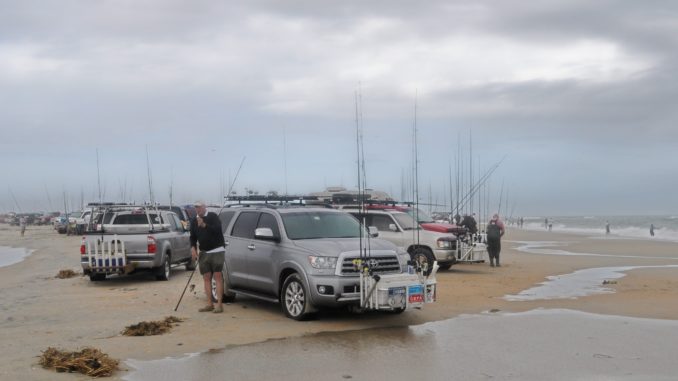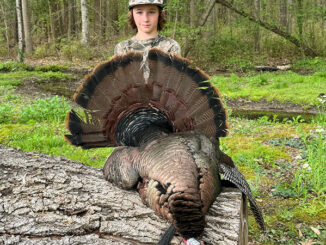
Bill in Congress would force NPS to roll back restrictions
Outer Banks anglers and beach visitors could see a relaxation of the National Park Service’s beach-access rules at Cape Hatteras National Seashore by September or October, just in time for fall fishing season. This change in the way the NPS manages parts of the national seashore was initiated by Rep. Walter Jones Jr., a congressman who represents eastern North Carolina. He’s been beating on Congress’s door since 2009, attempting to get bills passed that would roll back the effects of a federal judge’s 2008 decision that favored lawsuits by The Audubon Society and Defenders of Wildlife.
Jones was joined by Sen. Richard Burr and Sen. Kay Hagan, who helped craft a compromise rewrite (Senate Bill 486) that unanimously advanced out of the Senate Committee on Energy and Natural Resources. Twelve Democrats and 10 Republicans voted for the bill.
“The vote in the House (of Representatives) is assured (to approve a similar bill), while we’ll have to wait, probably until September or October, before the (full) Senate takes up the bill,” said Jim Keene of Nags Head, former president of the N.C. Beach Buggy Association. “Right now we’re on D.C. time, but we had a unanimous vote in the committee and support of the chairman.”
The two activist groups sued the NPS in 2008 while engaged in negotiated rule-making with other beach-user groups, including the Outer Banks Preservation Association, N.C. Dune Buggy Association, Cape Hatteras Anglers Club, local villages and businesses. The environmental activists charged that Off Road Vehicles driven for decades at CAHA beaches threatened or endangered some threatened sea birds and endangered turtles.
Their opponents, since merged to form the Cape Hatteras Access Preservation Alliance (CHAPA), pointed out none of the sea birds, including piping plovers, were on endangered species lists, and that most sea turtles nesting on OBX beaches are either plentiful or threatened, not endangered. Most of all they noted the strict rules approved by the judge had hurt local economies, which depend on spring and fall anglers visits, at the seven villages inside the seashore.
Keene said the Senate rewrite, while not containing everything CHAPA wanted, nonetheless contains many positive changes.
“The best thing is, the Park Service will have to negotiate and review (vehicle free areas) in size and location,” Keene said. “They’re just killing us, and many had no justification. (The NPS) also will have to consult with state of North Carolina on non-endangered species.
“They have more beaches shut down with colonial water birds and oystercatchers than (piping) plovers. The Park Service said they were birds of concern in North Carolina, but the N.C. Wildlife Resources Commission wrote a letter and said these birds required no special attention. (The WRC) said it had them on the concern list just to watch and follow them. There were no special regulations at state parks (for water birds), but the NPS wrote that into (CAHA) rules.”
The new legislation also would ask anglers to do everything possible to avoid and bypass turtles and their nests.
Keene said the bill would require the Park Service to report back to the Senate at the end of 12 months and give an accounting of actual changes made.
“(The NPS) can’t just say they’ll do something and ignore it,” Keene said.




Be the first to comment